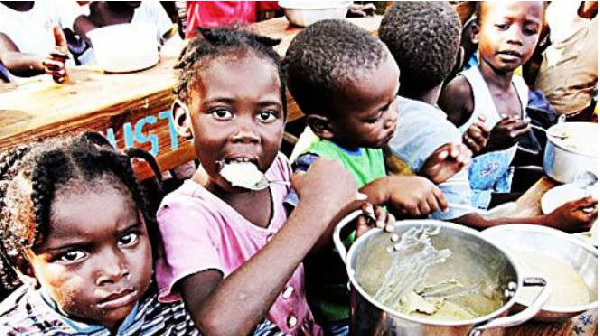
KHARTOUM, Sept 15 (NNN-AGENCIES) — Sudan’s future generation is grappling with war even as malnutrition and disease outbreaks follow the displaced to camps.
Since August, Sudanese authorities have been battling a cholera outbreak, which has now spread to Kassala, Gedaref and River Nile states, as well as Al Jazirah and Khartoum where the first cases emerged.
Sudan’s Ministry of Health has counted over 5,000 people with cholera which has killed 191 others.
A situational report by medical charity group MSF said weekly cases of the disease multiplied by four from the second week of August. Sudan has had cholera, a waterborne disease, before, but that was during peacetime and responses handled the matter in time.
Now the war, between the Sudan Armed Forces and the paramilitary Rapid Support Forces (RSF) is preventing adequate aid because it is forcing many to leave their homes.
“The menacing mix of heavy flooding and torrential downpours with woeful living conditions and inadequate access to drinking water that millions have today, particularly in crowded camps for displaced people, have created the perfect storm for the spread of this often deadly disease,” said Esperanza Santos, MSF emergency coordinator for Sudan, referring to the latest flooding that has piled the trouble for the camp dwellers.
The charity group said it had sent responders to Khartoum, River Nile, Kassala and Gedaref to work alongside the Ministry of Health to respond to the situation. By Sept 9, just some 2,165 patients had been treated.
But cholera is just one problem. Refugees fleeing the ongoing conflict in Sudan into neighbouring countries, or within their country, are facing hunger as well, which is adding to the malnutrition.
Sudan Displacement Tracking Matrix (DTM) said an estimated 90 percent of IDP (internally displaced people) households could reportedly not afford food, at least 52 percent of IDPs were children under the age of 18 years old.
Since the conflict escalated in April 2023, nearly 794,000 people, including 476,000 children, have sought refuge in South Sudan to the south. These new arrivals joined over 290,000 Sudanese refugees who had already fled to South Sudan in previous years due to violence.
Though the World Food Programme (WFP) provides food and cash assistance, funding shortages since 2022 have forced WFP to cut rations. Recent funding shortfalls have meant that since 2022, refugees seeking safety in South Sudan only receive half of what the WFP considers a full food ration.
Famari Barro, Interim South Sudan Country Director for Save the Children, warned of the growing crisis, stating:
“Hundreds of thousands of children across the country rely on food rations to survive – many will now be plunged into even further precarity.”
Poor nutrition, according to the World Health Organisation, can hurt one’s development of mental and physical capacities, hurting their future abilities.
For example, children under five may get stunted or develop conditions such as kwashiorkor or marasmus, eventually making them grow at pace with kids receiving proper nutrition.
Earlier this week, World Health Organisation Director-General Dr Tedros Adhanom Ghebreyesus and senior officials visited a WHO-supported nutrition stabilisation centre in Sudan, and said they had witnessed a “severe impact of the country’s malnutrition crisis.”
A report released a fortnight ago by the Intergovernmental Authority on Development (IGAD) said some 25.6 million people — more than half of Sudan’s population — are facing acute hunger, including more than 755,000 people on the brink of famine, according to the latest analysis.
“Currently, 3.6 million children are acutely malnourished, including 730,000 with severe acute malnutrition. The ongoing conflict has worsened food insecurity, hindering the delivery of crucial nutrition and health services to vulnerable populations,” said Dr Tedros in a press statement Monday.
The conflict in Sudan, which has displaced 11 million people, with about 17,000 deaths, some of who may have died from lack of food or medical care, according to some aid workers. — NNN-AGENCIES






